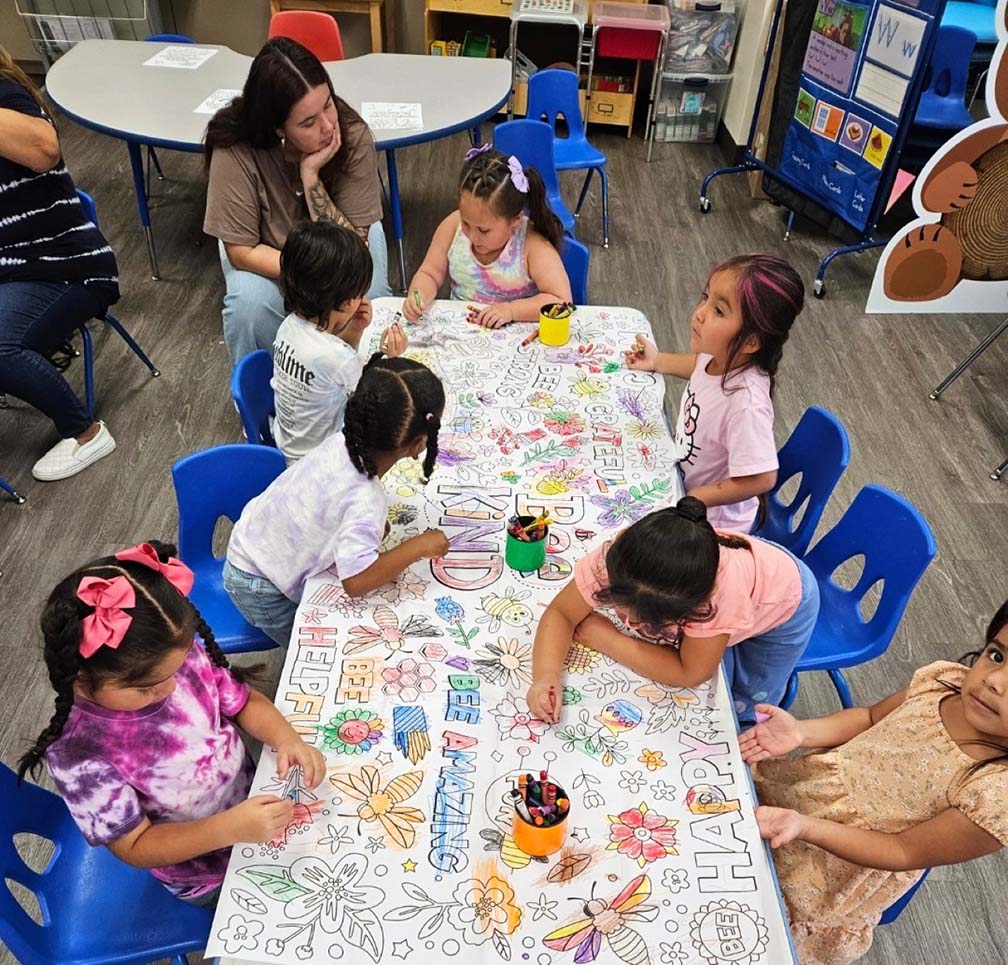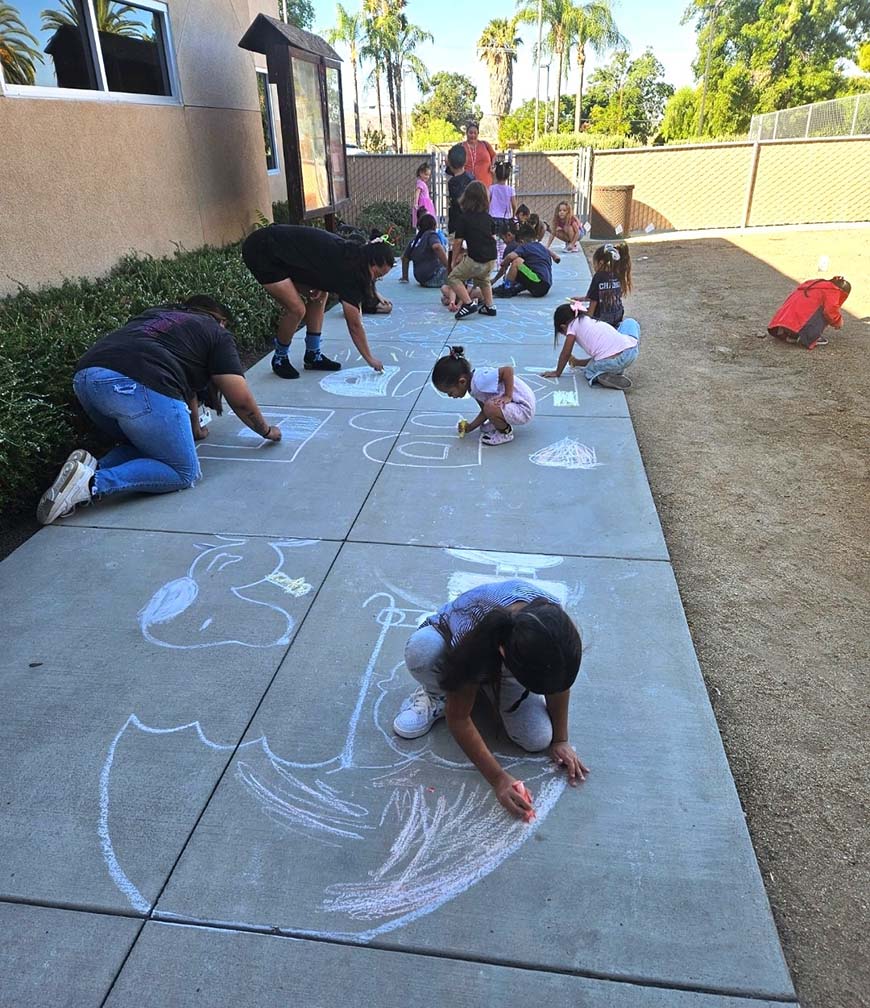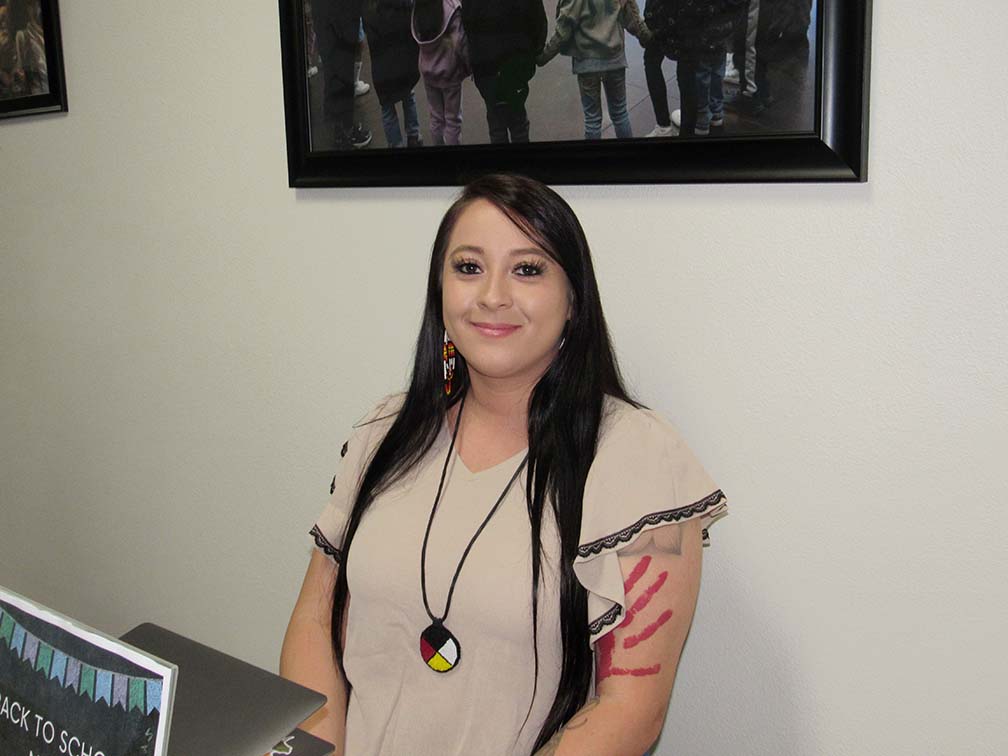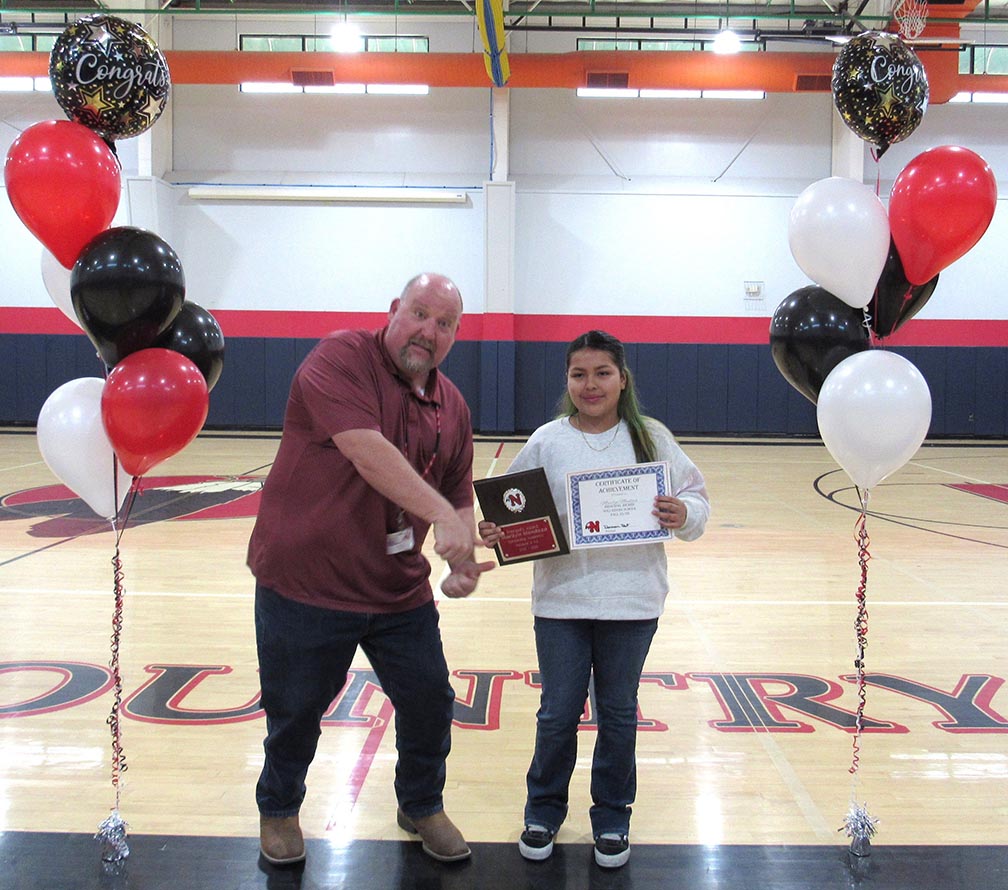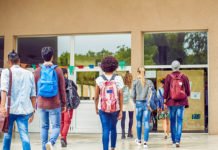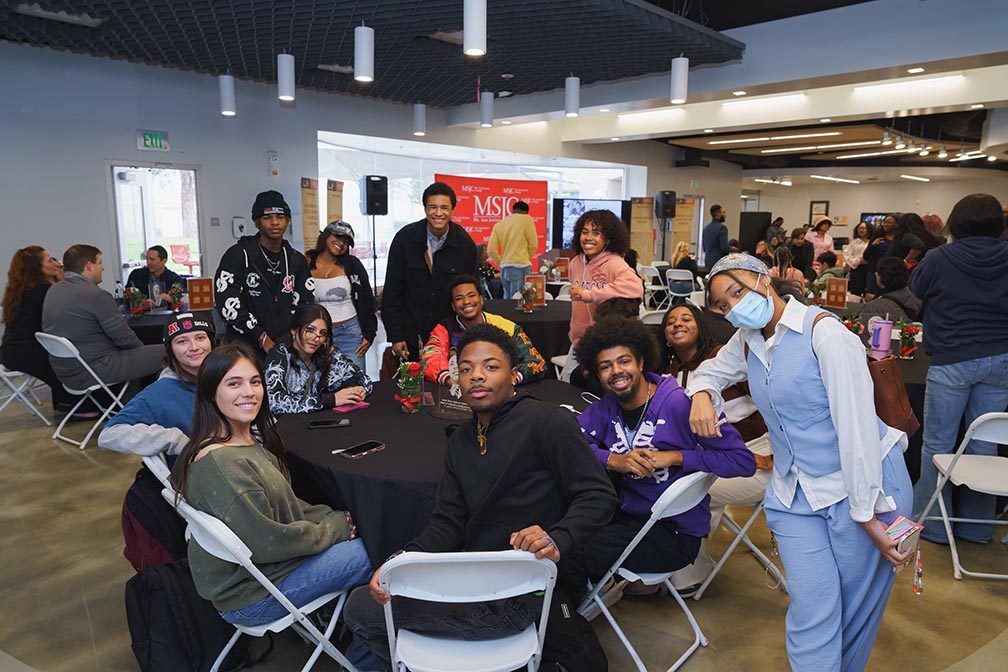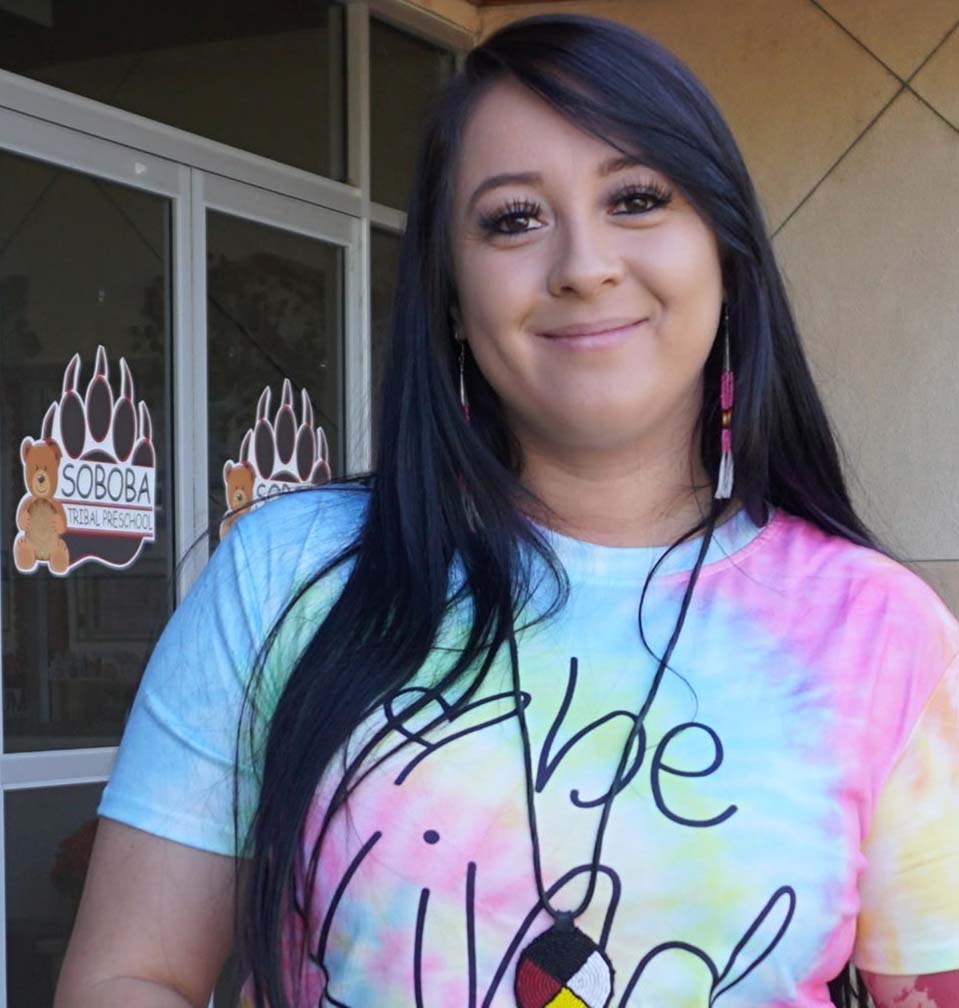
Soboba Band of Luiseño Indians
Special to Valley News
Soboba Tribal member Rachelle Peterson always knew she wanted to work with children. Becoming a school psychologist at Noli Indian School and Soboba Tribal Preschool, both on the Soboba Band of Luiseño Indians reservation, has given her the opportunity to advocate for all students and families within the school community.
“I’m deeply passionate about reducing the stigma surrounding mental health in Indian Country, and in this role, I can be a consistent source of support for students while giving a voice to those who may not yet be able to speak up for themselves,” Peterson said.
When she began working there near the end of the last school year, she explained her role as someone who helps students with their feelings, friendships, and learning.
“It is my job to make sure you feel safe, happy, and able to learn,” she told the students. “I work with your teachers and parents/guardians to ensure you are receiving the best support to be successful at school. I focus on things like behavior, mental health, academics, and school systems.”
During her four-year graduate program, Peterson worked at six different schools, ranging from high school to elementary school, throughout San Diego County. Peterson said she always knew she would return home to serve her Tribal community.
“Being able to come back and work with and for my own relatives is one of the greatest blessings I could ask for,” she said. “In our culture, we are taught to take care of our relatives, and this work is my way of giving back to the community that raised me.”
Peterson is the first school psychologist at the preschool. Noli has had a contracted school psychologist who would come to provide specific services for certain students, but this is the first time one has been housed on campus.
“Working as a school psychologist across two schools allows me to experience the full range of my role, from conducting psychoeducational assessments at Noli to fostering social-emotional learning at the preschool,” she said. “Having the opportunity to work with two different age groups has been a truly rewarding experience.”
At the preschool, most of her work is centered around developing social-emotional skills, whether that is emotional regulation skills, coping skills, conflict resolution, relationship building, and/or decision making.
“Our students are at the age where they are learning how to interact with peers and adults as well as learning new emotions and how to regulate those emotions in a healthy way,” Peterson said. “Early social emotional learning is an investment in your child’s emotional, social, and academic future. At both schools, I collaborate with teachers to provide academic and behavioral interventions for those students who need additional support and are struggling in any of these areas.”
Peterson facilitates weekly SEL lessons with each class at the preschool. To decide which topics to focus on with each class, she consults with teachers to narrow down what areas of support they feel their students will benefit from most. She has implemented a few schoolwide mental health activities.
“We have done lessons on kindness, characteristics of a good friend, emotional regulation, and coping skills,” she said. “We recently had a kindness week where I facilitated an activity/lesson with each class every day of the week. Students participated in interactive activities that focused on kindness with friends, family, animals, and ourselves. I am currently working on starting an annual mental health fair at the preschool.”
At Noli, the majority of her role currently consists of conducting psychoeducational evaluations for special education. This includes consulting with teachers, parents/guardians, the special education teacher, and students. She also collaborates closely with the school counselor to implement mental health supports, activities, and social-emotional learning initiatives.
She is developing a series of workshops that focus on educating Tribal families about special education and their rights as parents/guardians. “My goal for these workshops is to provide a safe space for families who currently have students in special education or families who want to learn more about the process,” Peterson said.
She said students are always welcome to stop by her office at any time during the school day if they feel the need. At Noli, she works closely with the school counselor so if she is at the preschool when a student needs support at Noli, they are referred to the school counselor. She also receives referrals from teachers and parents when they have concerns about a student or believe additional support might be helpful.
Peterson graduated from San Diego State University in the School Psychology graduate program where she earned her Master’s degree in Counseling and her Educational Specialist in School Psychology. She was also a scholar and mentor on the SHPA (Supporting High-Intensity Mental Health Needs of Native and Indigenous Youth) project at SDSU. She was introduced to the field of School Psychology during her last year of her undergraduate at Cal State San Marcos.
“What really piqued my interest in the program was the SHPA grant, which focused on the mental health needs of Native and Indigenous youth,” she said. “School psychology wasn’t something I had planned on pursuing in the beginning, but it became a career that gave me the platform I needed to support our Native children.”
A school psychologist specializes in mental health and behavioral issues, along with conducting psychoeducational assessments and developing Individualized Education Plans (IEPs). School psychologists work with both general education and special education students but focus on students who need more intensive support by providing intervention or assessments when needed. Peterson said a big part of her job consists of collaborating with teachers, administration, school counselors, and families to help the students succeed at school.
“I am so grateful to have so much support from parents and families since starting at the preschool and Noli,” she said. “I have received positive feedback, especially from parents who have shared that they feel more comfortable with having a Tribal member and familiar face helping support their child at school.”
Peterson is deeply grateful to her Tribe for supporting her pursuit of higher education, an opportunity that helped her grow personally and professionally.
“Growing up, we were taught that when you take, you must also give back,” she said.
“Reciprocity is a core value that was deeply instilled in me, and it continues to guide the work I do today.”
National School Psychology Week is Nov. 3-7. This week is an opportunity to celebrate the contributions of school psychologists and raise awareness about the important role they play in supporting students’ mental health and academic success.


